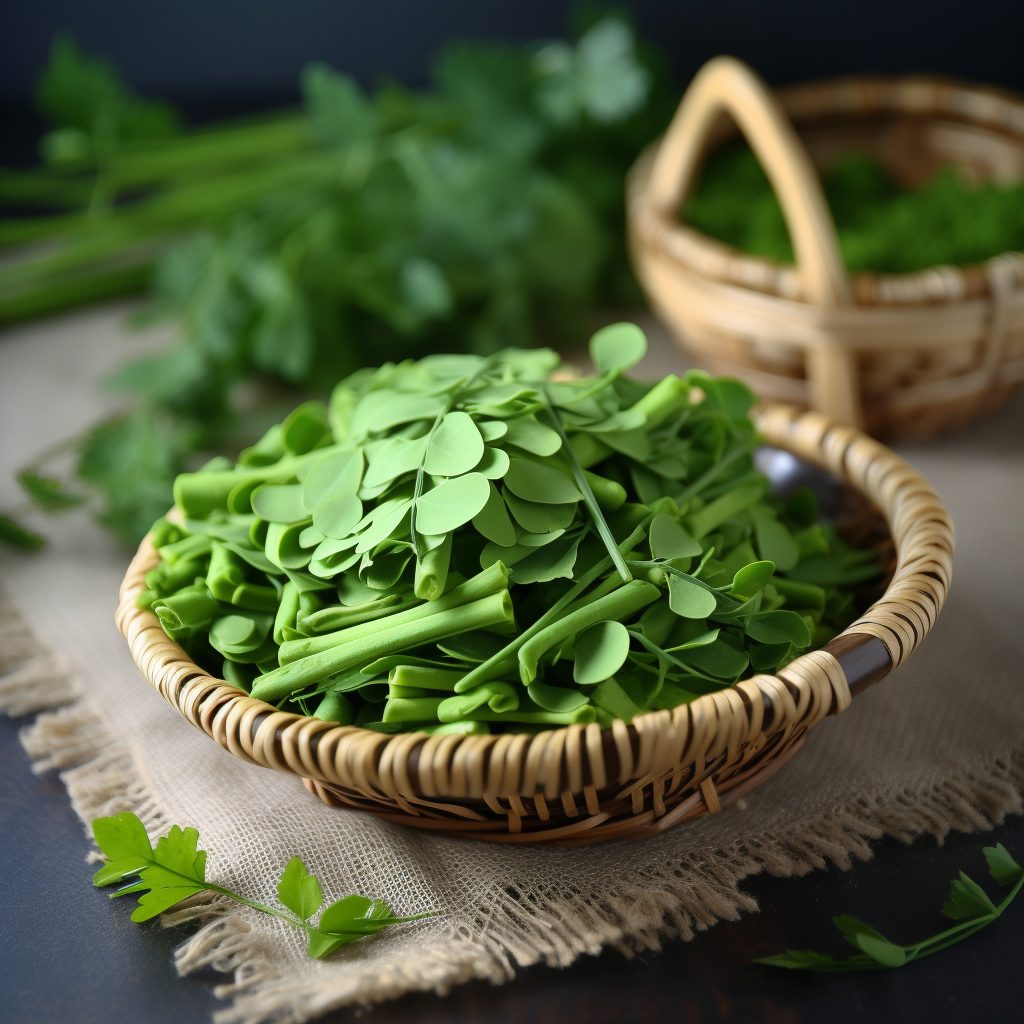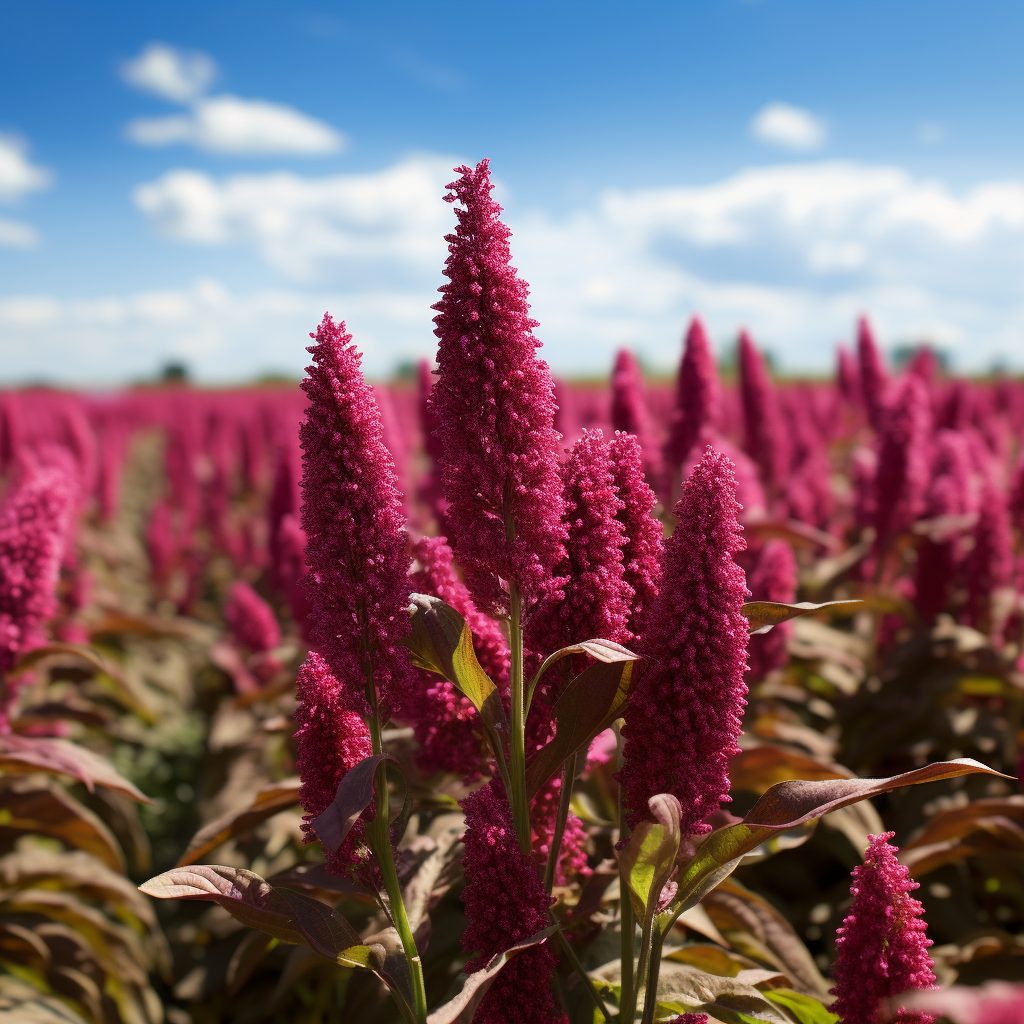Moringa, also known as the “Miracle Tree,” has been used for centuries in traditional medicine to treat a variety of ailments. While Moringa has been primarily known for its weight loss benefits, recent studies have shown that it offers a host of other health benefits that are especially important for women over 55.

Beyond weight loss, Moringa has been shown to improve energy levels, enhance overall wellness, and aid in digestion. In fact, a review in the journal Food Science and Human Wellness found that Moringa oleifera provides more than seven times the vitamin C of oranges, ten times the vitamin A of carrots, 17 times the calcium of milk, nine times the protein of yogurt, 15 times the potassium of bananas, and 25 times the iron of spinach.
As women age, they face a variety of health concerns, including decreased energy levels, digestive issues, and overall wellness. This post will explore the comprehensive health benefits of Moringa for women over 55, with scientific citations and support. By understanding the holistic benefits of Moringa, women can improve their overall health and well-being.
Understanding Moringa

Moringa is a plant native to India, also known as the “miracle tree” due to its numerous health benefits. It has been used for centuries in traditional medicine to treat a variety of ailments, including inflammation, anemia, and digestive issues.
Moringa leaves are a rich source of vitamins and minerals, including vitamin C, vitamin A, calcium, and potassium. They also contain antioxidants and anti-inflammatory compounds that can help protect the body against damage from free radicals and chronic inflammation.
In addition to its nutritional value, Moringa has been shown to have a number of health benefits. Studies have found that it can help improve energy levels, boost the immune system, and support healthy digestion. It has also been shown to have anti-cancer properties and may help lower blood sugar levels in people with diabetes.
Moringa is available in a variety of forms, including powder, capsules, and tea. It can be added to smoothies, soups, and other recipes to boost their nutritional value. However, it is important to note that Moringa supplements are not regulated by the FDA, so it is important to choose a reputable brand and talk to a healthcare provider before adding it to your diet.
Overall, Moringa is a versatile and nutrient-rich plant that can provide a range of health benefits. Incorporating it into a balanced diet may help support overall wellness and vitality, particularly for women over 55.
Weight Loss Benefits of Moringa
Moringa is a plant that is known for its weight loss benefits. According to a study published in the Journal of Food Science and Technology, Moringa leaves contain high amounts of polyphenols, which are compounds that can help reduce body weight and fat mass. Polyphenols can also help regulate blood sugar levels, which is important for weight loss.
In addition to polyphenols, Moringa leaves are also rich in fiber. Fiber is essential for weight loss because it helps keep you feeling full for longer periods of time. This can help reduce overeating and snacking between meals.
Moringa leaves are also low in calories. One cup of chopped Moringa leaves contains only 13 calories. This makes it an excellent food for weight loss because you can eat a lot of it without consuming too many calories.
Another way that Moringa can help with weight loss is by boosting metabolism. According to a study published in the Journal of Medicinal Food, Moringa leaves can increase metabolism by up to 25%. This means that your body will burn more calories at rest, which can help you lose weight faster.
Overall, Moringa is an excellent food for weight loss. It contains polyphenols, fiber, and is low in calories. It can also boost metabolism, making it easier to lose weight.
Energy and Vitality Boost
Moringa is also a natural energy booster that can help women over 55 combat fatigue and improve their overall vitality. The leaves of the Moringa tree are rich in nutrients, including vitamins A, C, and E, all of which are essential for maintaining healthy energy levels. In fact, a study published in the Journal of Food Science and Technology found that Moringa leaves contain high levels of antioxidants, which can help reduce oxidative stress and improve energy metabolism.
One of the reasons Moringa is so effective at boosting energy levels is that it contains a unique combination of nutrients that work together to support optimal energy production. For example, Moringa leaves are rich in iron, which is essential for the production of hemoglobin, a protein that carries oxygen throughout the body. Additionally, Moringa leaves contain B vitamins, which are essential for converting food into energy.
Another way that Moringa can help improve energy levels is by supporting healthy digestion. Poor digestion can lead to fatigue and low energy levels, as the body struggles to break down and absorb nutrients from food. Moringa leaves contain high levels of fiber, which can help support healthy digestion and improve nutrient absorption. Additionally, Moringa leaves contain compounds that can help reduce inflammation in the digestive tract, which can further support healthy digestion and improve energy levels.
Overall, Moringa is an excellent natural energy booster that can help women over 55 combat fatigue and improve their overall vitality. By supporting healthy energy metabolism and digestion, Moringa can help women feel more energized and alert throughout the day.
Scientific Evidence Supporting Moringa’s Benefits
Moringa has been used for centuries in traditional medicine to treat a variety of ailments. Recent scientific studies have confirmed many of the health benefits associated with Moringa. Here are some of the key findings:
Anti-inflammatory Properties
Moringa contains several bioactive compounds that have been shown to have anti-inflammatory properties. A study published in the journal “Pharmaceutical Biology” found that Moringa leaf extract was effective in reducing inflammation in rats with paw edema. Another study published in the “Journal of Food Science and Technology” found that Moringa leaf extract had a significant anti-inflammatory effect on human cells in vitro.
Antioxidant Properties
Moringa is rich in antioxidants, which help protect the body from oxidative stress. A study published in the “Journal of Food Science and Technology” found that Moringa leaf extract had a high antioxidant activity. Another study published in the “Journal of Agricultural and Food Chemistry” found that Moringa seed extract had a higher antioxidant activity than green tea.
Cardiovascular Health
Moringa has been shown to have a positive effect on cardiovascular health. A study published in the “Journal of Medicinal Food” found that Moringa leaf powder improved lipid profiles in rats. Another study published in the “Journal of Ethnopharmacology” found that Moringa leaf extract had a protective effect on the heart in rats with induced myocardial infarction.
Digestive Health
Moringa has been used traditionally to treat digestive ailments. A study published in the “Journal of Medicinal Food” found that Moringa leaf extract had a protective effect on the liver in rats with induced liver damage. Another study published in the “Journal of Food Science and Technology” found that Moringa leaf extract had a significant protective effect on gastric ulcers in rats.
In conclusion, scientific studies have confirmed many of the traditional health benefits associated with Moringa. Its anti-inflammatory, antioxidant, cardiovascular, and digestive properties make it a valuable addition to a healthy diet.
How to Incorporate Moringa into Your Diet
Moringa is a versatile plant that can be incorporated into your daily diet in various forms, including fresh leaves, powder, capsules, and tea. Here are some ways to add Moringa to your diet:
Moringa Recipes
Moringa leaves can be added to salads, soups, stews, and curries. They have a mild, earthy flavor that blends well with other ingredients. Here are some Moringa recipe ideas:
- Moringa Pesto: Blend fresh Moringa leaves, garlic, pine nuts, Parmesan cheese, and olive oil in a food processor to make a healthy and flavorful pesto sauce. Use it as a dip, spread, or topping for pasta, pizza, or sandwiches.
- Moringa Smoothie: Mix fresh Moringa leaves, banana, almond milk, and honey in a blender to make a refreshing and nutritious smoothie. You can also add other fruits, nuts, and seeds to customize the flavor and texture.
- Moringa Soup: Saute chopped onions, garlic, and carrots in a pot, then add vegetable broth, chopped Moringa leaves, and spices like turmeric, cumin, and coriander. Simmer for 20-30 minutes until the vegetables are tender and the flavors are blended.
Moringa Supplements
Moringa supplements are available in various forms, including capsules, powders, and teas. They are convenient and easy to use, and provide a concentrated dose of Moringa nutrients. Here are some tips for choosing and using Moringa supplements:
- Look for high-quality Moringa supplements that are organic, non-GMO, and free of additives and fillers. Read the label carefully to check the ingredients, dosage, and instructions.
- Start with a low dose of Moringa supplements and gradually increase it over time. This will help your body adjust to the new supplement and avoid any side effects.
- Take Moringa supplements with food or water to enhance absorption and digestion. Avoid taking them on an empty stomach, as this may cause nausea or stomach upset.
- Consult your healthcare provider before taking Moringa supplements if you have any medical conditions or are taking any medications. Moringa may interact with certain drugs, such as blood thinners and diabetes medications.
Safety and Precautions for Moringa Consumption
While Moringa is generally considered safe for consumption, there are some precautions that should be taken. Pregnant and breastfeeding women should avoid consuming Moringa as there is not enough research to determine its safety for these populations.
In addition, individuals taking medication for diabetes should be cautious when consuming Moringa as it may lower blood sugar levels. It is important to consult with a healthcare professional before adding Moringa to your diet, especially if you have a pre-existing medical condition or are taking medication.
Consuming excessive amounts of Moringa may also lead to adverse effects such as diarrhea, nausea, and heartburn. It is important to follow recommended dosage guidelines and not exceed the recommended daily intake.
Furthermore, it is important to ensure that the Moringa products you consume are from a reputable source and have been tested for contaminants such as heavy metals. This is especially important for individuals with compromised immune systems or those who are pregnant or breastfeeding.
Overall, while Moringa has many potential health benefits, it is important to exercise caution and consult with a healthcare professional before adding it to your diet.
Conclusion
In conclusion, Moringa is a nutrient-dense plant that offers a wide range of health benefits for women over 55. Its high levels of vitamins, minerals, and antioxidants make it an excellent addition to any diet.
Research has shown that Moringa can improve energy levels, aid digestion, and enhance overall wellness. Additionally, it has been found to have anti-inflammatory and anti-cancer properties, which may help prevent chronic diseases.
While Moringa is not a miracle cure, incorporating it into a healthy lifestyle can have numerous positive effects on health and well-being. It is important to note that individuals should consult with their healthcare provider before adding any new supplements or making significant changes to their diet.
Overall, Moringa is a promising superfood that can offer a comprehensive range of health benefits for women over 55. By incorporating it into a balanced diet and active lifestyle, individuals can enjoy improved health and wellness.
Disclaimer: The information provided in this blog is for educational purposes only and is not intended as a substitute for professional medical advice. Always consult with your physician or another qualified healthcare provider before starting any new treatment or with any questions you may have regarding a medical condition. We also cannot guarantee the accuracy of the scientific studies mentioned.
David, a dedicated superfood enthusiast, has spent over a decade delving deep into the healing and rejuvenating powers of superfoods. With his vast knowledge, he passionately shares insights on how these natural wonders can optimize health and vitality for modern lifestyles.



